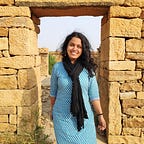Global Inequity — a major hurdle (1/2)
33 years from the time that James Hansen, ex-NASA scientist, testified in front of the US Congress that the rise in global temperatures was a consequence of human activity, policy makers and officials are only just waking up and creating change.
Are things looking up though?
We witnessed a historic win earlier this month, with courts ruling that Shell needs to slash their emissions.
Climate change is a term that’s thrown about everywhere now, but it is true. This phenomenon has been set in motion years ago, and the catastrophic events have been seen in higher frequency. This is of serious concern, especially with regards to aiming to achieve Net Zero goals.
Panelists at the Green Swan 2021 conference warned that policy makers leaving behind the social agenda in our journey to climate goals can be hugely problematic. People working in the financial sector need to be well aware of this climate change related risk.
It is imperative to understand that the adverse effects of climate change are seldom felt by the people who contribute the most to it. Unfortunately, climate changes stresses marginalised communities more, despite their minimal contribution to this. Not focusing on designing polices to combat poverty and inequality is foolish.
When we think of ‘stranded assets’ we must sensitise ourselves to the fact that people should not be stranded. Tribal communities, Island communities, women, coastal areas are all in grave danger. Rewiring the way we understand this is crucial, human rights issues and climate change feed into each other and are deeply interlocked.
Part 2 is coming up next!
Read more at https://www.theasset.com/article-esg/43819/theasset.com
